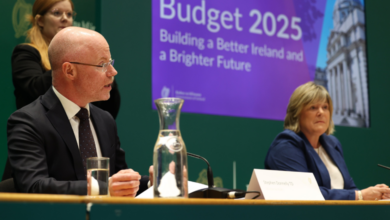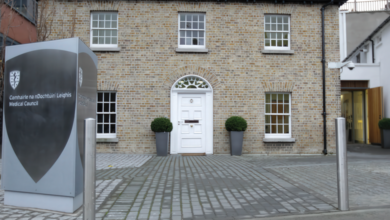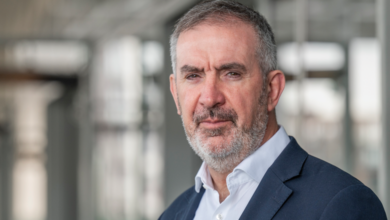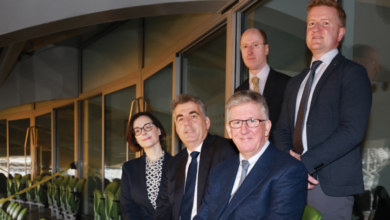Irish health survey
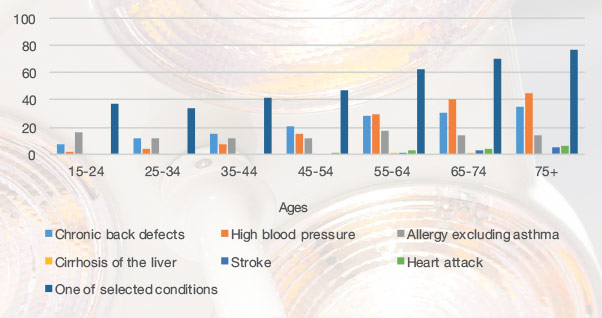
Health Factors

Alcohol:
81 per cent drink alcohol
16 per cent binge drink at least once a week

Tobacco:
22 per cent of the population (aged 15 and over) are smokers
15 per cent smoke daily and 7 per cent smoke occasionally

Weight:
35 per cent
are overweight
18 per cent are obese

Fruit and vegetables:
42 per cent eat five or more portions daily
Well being

Self-image:
83 per cent perceive their own health as either good or very good
Disability:
12 per cent have a disability
Work:
24 per cent
reported absence from work due to ill health 5.6 average lost days
Ill health:
32 per cent have a long-term illness or health complaint
Top health conditions:
19 per cent suffered from lower back disorder
16 per cent suffered from high blood pressure 14 per cent suffered from allergies
Prevalence of selected conditions, 2015 (%)

Health and care treatment

Doctors:
74 per cent had a GP consultation in the last 12 months
6.2 average visits to the GP

Mental health:
8 per cent reported symptoms of at least moderate depression in previous two weeks

Carers:
10 per cent provide care for another individual

Nurses:
34 per cent had a
nurse-only consultation in the last 12 months
2.9 average visits to the GP


